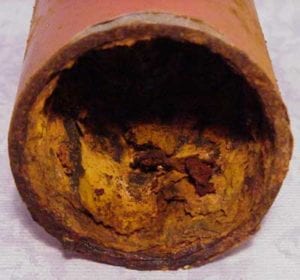The South African Plastic Pipe Manufacturers’ Association (SAPPMA) has warned that the replacement of old water pipes around the country is long overdue. Speaking at the launch of National Water Week (18 to 24 March 2013), SAPPMA chairman Jan Venter warned that the existing steel and asbestos cement pipe infrastructure in South Africa has undoubtedly corroded during the last 50 years, since they have been installed.
“Water distribution, waste disposal, irrigation and telecommunications all rely on pipelines to function. Pipelines, therefore, lie at the heart of South Africa’s infrastructure and should be replaced before they fail,” Venter warns. Referring to the 2011 Census results, which show that South Africa’s population has increased from an estimated 40.5 million people in 1996 to an estimated 51.8 million people in 2011, Venter warns that the country’s infrastructure is under pressure and threatens to collapse if municipalities do not follow the example of the eThekwini municipality in Durban, which recently completed aUS$205 million (R1.88 billion) asbestos cement pipe replacement project, replacing 1 750 km of ageing asbestos cement water pipe with modified polyvinyl chloride (mPVC) and high-density polyethylene (HDPE) pipe. “The majority of the old pipes were installed in the early 1960s and have undoubtedly reached the end of their effective life span. Unless urgent attention is given to the replacement and maintenance of the water infrastructure, the end result is predictable: bursts will start occurring on a daily basis, followed by catastrophic component failure and regular and prolonged disruptions in service delivery,” Venter warned.According to SAPPMA, both the quality and quantity of water are under severe pressure in South Africa, aggravated by rapidly increasing demand, severe pollution and huge losses in distribution.“Two major causes of water loss are corrosion and poor jointing. For this reason, old steel or asbestos pipes are being replaced around the country with plastic pipes, because they do not corrode and the joints are leak-proof if done correctly.”
SAPPMA represents more than 80% of the plastic pipe produced in South Africa, and focuses its efforts on ensuring pipe systems are leak-free and durable for long-term use. It also focuses on the rehabilitation of old pipelines. “Although the plastic pipe industry is relatively small, it is of extreme importance in the development and maintenance of the country’s infrastructure,” Venter says.“It is also one of the most demanding industries, as our products are required to last in excess of a hundred years.”HDPE and PVC pipes answer these calls with distinction as the materials are lightweight and easy to handle, easy to join, available in a range of sizes and pressure ratings, and have low frictional resistance, with hydraulic properties that remain virtually unchanged over its useful life, which results in low pumping costs. Venter concludes that ordinarily, not many people spare a thought for the thousands of kilometres of plastic pipes that supply rural communities across Africa with clean drinking water.“However, SAPPMA and its members see the water market as one of our most important areas of focus, although the country is only now waking up to the fact that water is fast becoming a critical problem. We are urging local governments to ensure that they pay attention to the warning signs by implementing a pipe-replacement project and to invest in developing the necessary technical skills required to for such a project, but which are greatly lacking in our country.”






